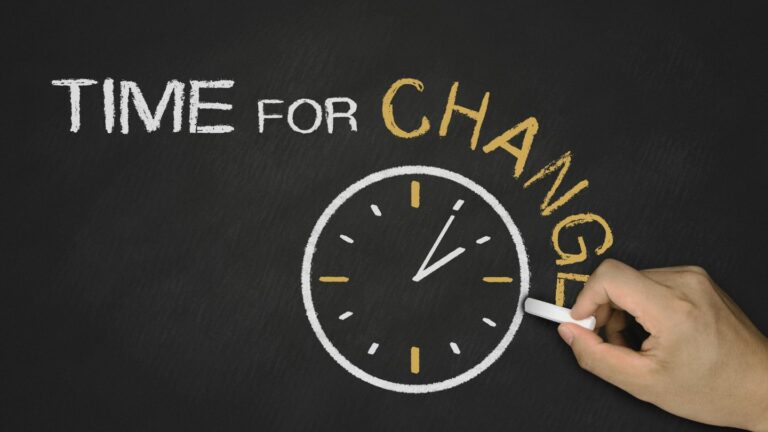( Reading Time: 4 min 17 sec )
We know budgeting isn’t automated; it does take more work than not doing it. Many people have struggled to create a budget aligning with their goals and needs.
So, how do we steer around budget frustration and find a budget that makes us happier? We need to take the time it takes; for most people, that is 90 days to get solid traction. We need to learn to assign our income in addition to tracking our budget categories. We also need to learn how to adjust our budgets without breaking them.
We will break down those concepts in this article: the 90-day shift, the advantage of assignment, and budget agility. In each of these, we will also look at how and why these three approaches to budgeting make us happier.

Good budgets are like fine wine?
If you think the wine aspect is why the 90-day sift makes us happier, sorry. It is just an analogy. Well, if you think about it, there is some similarity. Especially when stuff starts to work, you find a pain-free path through the budgeting journey. Our coaching clients have commented about liking budgeting; several said it had become a fun part of their lives. It doesn’t need to be fun for everyone, but we can promise good budgeting is, at worst, a pain reliever and not a source of anxiety.
What is this 90-day shift? Better budgeting is a three-month journey. It begins as we do a dictionary-level budget. We project our income and expenses. Some of us may believe we will do better than others, but try as we may; it is best to let our ego have space to be wrong here. Winning here is not about our ego but our growth and finding better results in the days ahead.
We listed all the income and expenses we remembered in the first month. The challenge is we didn’t remember some things, and other things have a different value during the month than they did as we created our plan. Imperfect budgeting is OK. All this information helps us learn and prepare for the budget in month two. Again, what we learn in month two helps us do even better in month three. Getting it right the first time is about ego, which makes budgeting painful for many.
If we are afraid to fail, we may be rejecting growth. Failure isn’t a personality trait but a temporary thing that happens. You must have heard the same examples as me. The lightbulb was a long chain of failures, but what made the lightbulb happen was accepting the path of failure that included learning. Failure that teaches is the positive kind. When we don’t learn, we don’t grow, and things remain the same. When we let things stay the same, we are not just hiding from failure but denying ourselves an opportunity to change in ways that matter most.
When you start finding that type of change in your life, you will begin to agree that better budgeting can impact your happiness.

What does assignment add to tracking?
We are not against tracking at all at Budgeting Today. This section is, for most, the biggest key to shifting from budget pain to pleasure. We learned from other coaches. We also learned from watching our client’s journey to happier budgeting, a subtle change that changes everything.
First, tracking is doing more than budgeting. We are a couple of days away from one of the most popular budgeting software solutions of our time going away, Mint. People could watch their different accounts, and it automated the tracking to let them know if they spent more than they planned in individual budgets. Using tracking was better than creating a plan without awareness of how well the plan was being worked.
The secret sauce, the magic, and the mystery are simple. If we use physical money in envelopes and want or need something that takes more money than that envelope, it has to come from another envelope. To say yes to something, we may have to say no to something else. We all run out of money, and eventually, we all have to say no to something.
A reasonable budget makes us happy because when we say no to something, we know in advance what we are saying no to. When we track our money and overspend a budget category, we have no idea what other category runs short. Looking at the bank account or the credit card and spending because the number looks good puts you on the road to waste and regret.
We have repeatedly found that it shocks people when they spend based on their budget category. It seems like such a small thing, but if we do it for the entire 90-day cycle, hope replaces grief, and creativity replaces waste. Moving from grief to hope and waste to creativity are reasons to believe better budgeting can impact our happiness.

Budgets that survive unknown obstacles.
We will all agree that life isn’t interested in making our budgets work. Life isn’t an enemy of budgeting. It just doesn’t care how it affects them.
If we have more than enough to care for our needs and beyond, then what we do with our extra money is a matter of personal choice. One person may buy ice cream for a week, and another may buy a new book. It isn’t the budget’s fault if there isn’t enough money to buy both of these. The budget doesn’t keep you from doing anything. The challenge is choosing what we want our money to do, and the budget has the job of listing the choices we make.
Later, as the week, month, or whatever period we budgeted for passes, we are free to make a different choice if there is enough money. In a reasonable budget, like the envelope system, we get to change our choices as long as resources are available to move between categories. While a budget doesn’t take away our desire to acquire more than our income can provide, it does help us make choices so we don’t regret them later.
If we take the time to practice reasonable budgeting, spend based on our choices, and adjust the budget where income allows, there will be fewer negative and more positive results.








